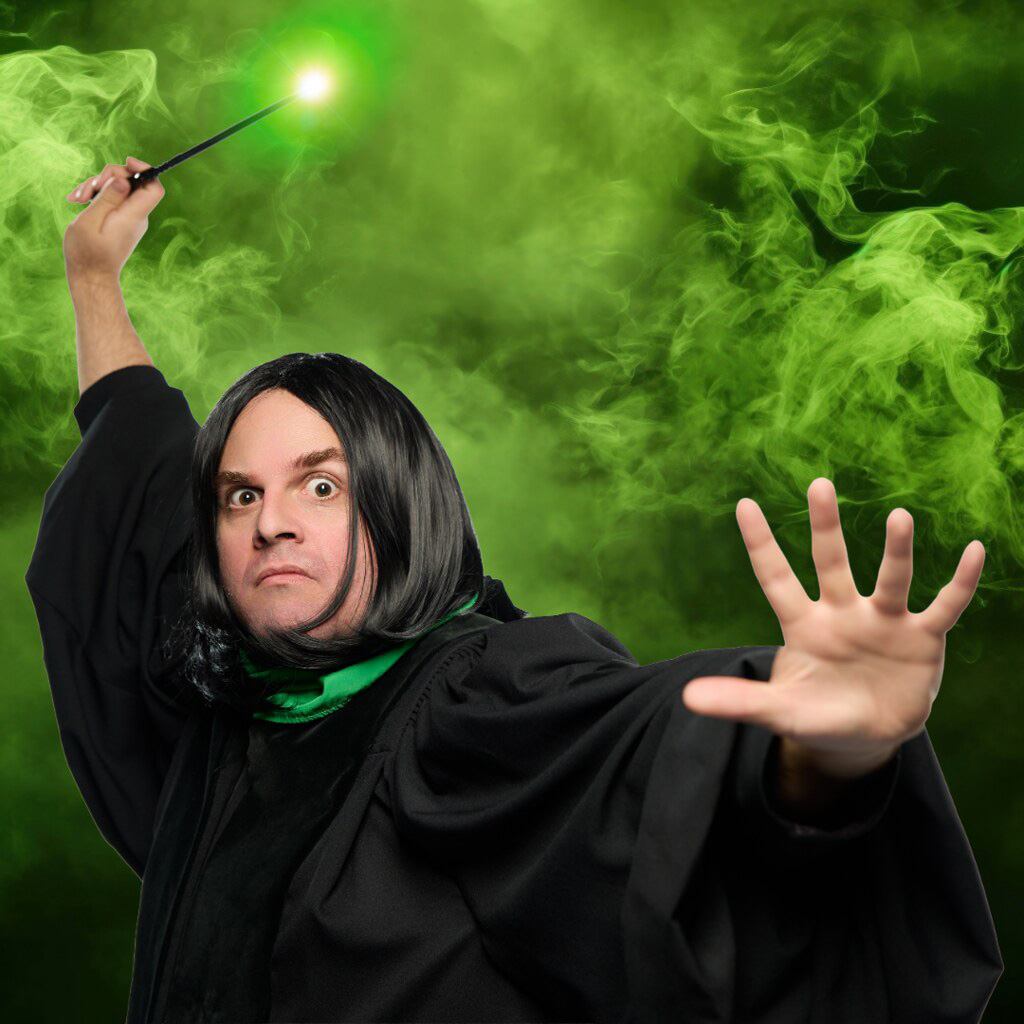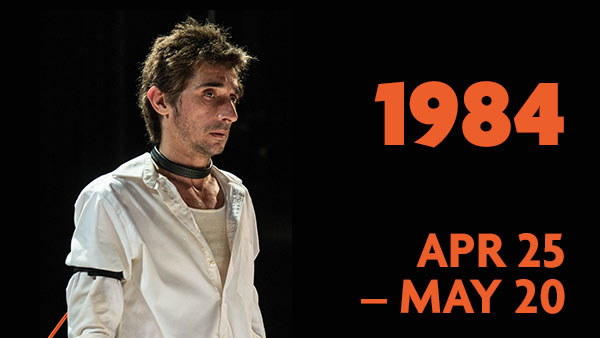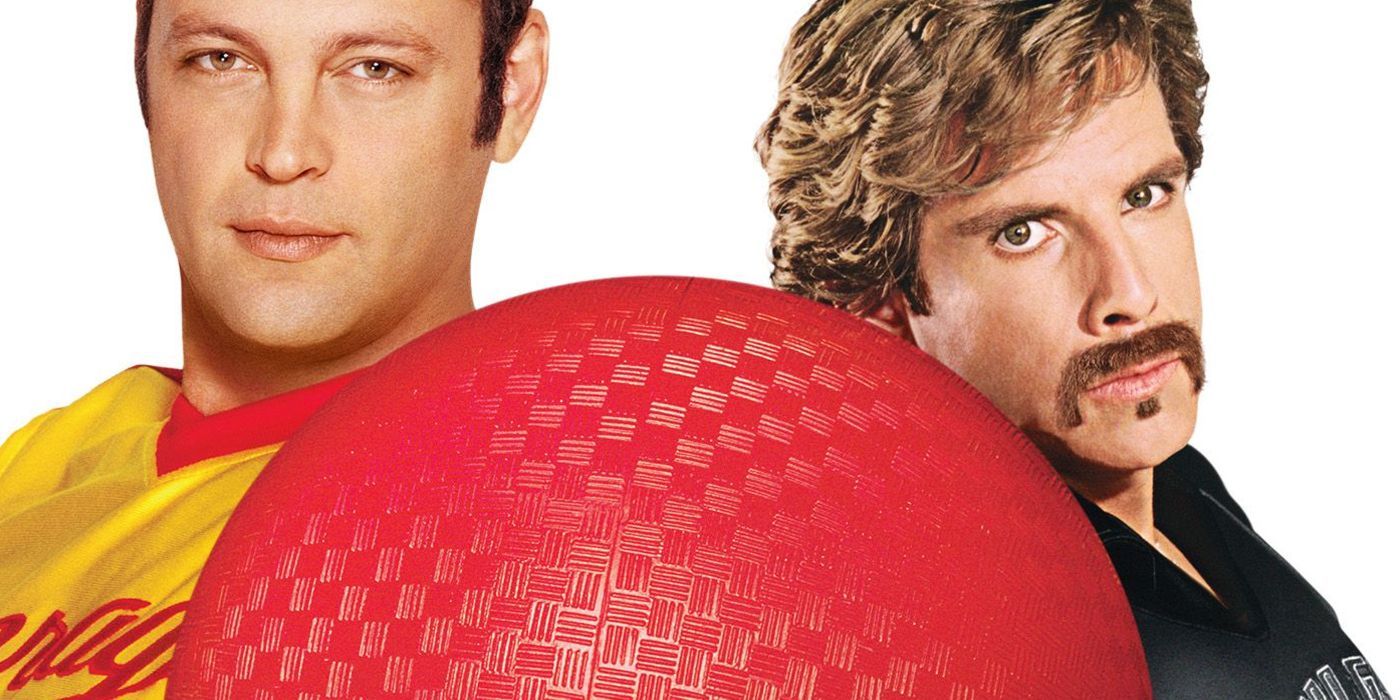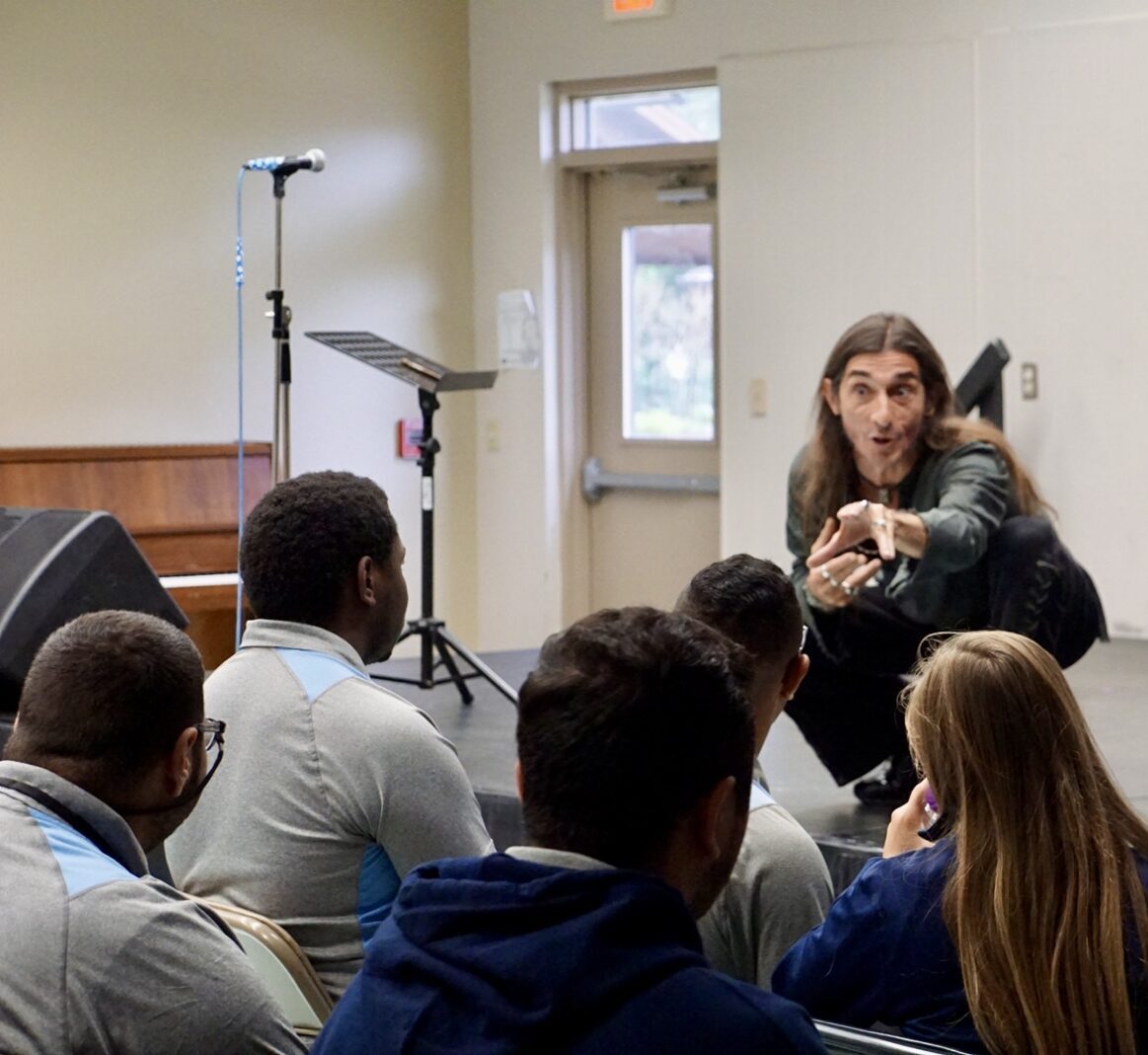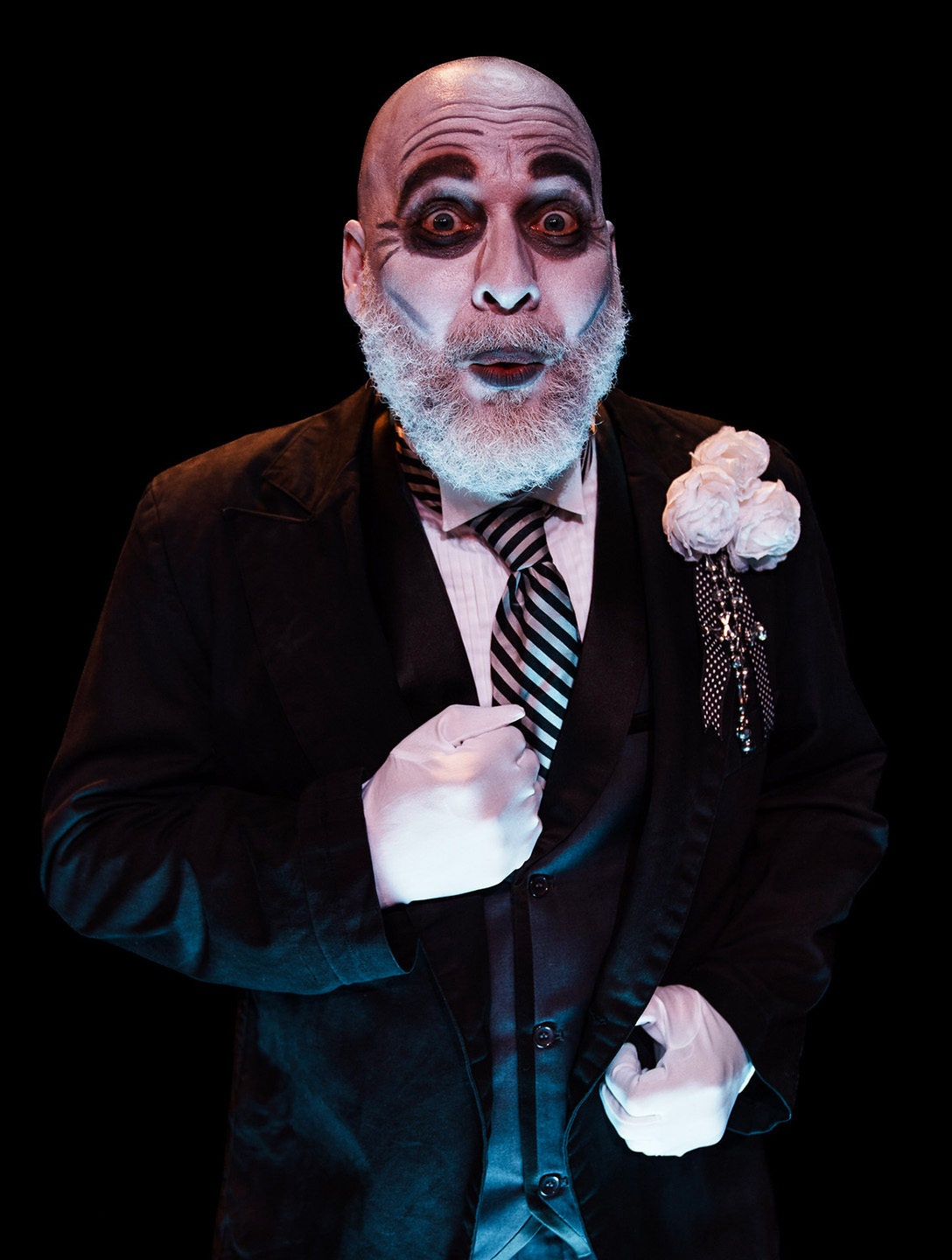Sorry this is so long–you guys got me last night.
I’d like to think the metal detectors everyone had to pass through on their way into Jobsite Theatre’s production of 1984 were all part of the theme of the night, that both the detectors and the play would remind people that dystopian societies rob everyone, even the dictators in charge, of freedom and human dignity. I’d like to think that the metal detectors at every other show that night—at the Jaeb, at Morsani, at Ferguson—were a tribute to how important Jobsite is to the whole Straz experience, that finally, a recognition of the value of a small professional theatre was being paid across Straz. I’d like to think that the feeling of being searched and watched and poked and prodded, all in the name of freedom and security, was something all Americans knew was happening more and more and that we all need to stand up and say ENOUGH! It has to stop.
But wishful thinking doesn’t make it so.
Still, walking through that metal detector helped set a tone for 1984, giving everyone a chance to feel they were under scrutiny as they handed the security guard either their cellphone or their pocketbook (or both) and walked through that two-foot tunnel. It is doubtful anyone who went through that tunnel was unfamiliar with the novel from which this play was adapted. All knew the big lines: “Big Brother is Watching You!” and “I love Big Brother.” All knew the doublespeak of “Ignorance is Strength” and “War is Peace.” All knew about the Ministry of Love and the Two-minute hate. So if minds were properly engaged, thinking ahead about the show they were about to see, walking through the metal detector was a nice reminder that security not only keeps us safe but also robs us of freedom, and that Benjamin Franklin was right: Those who would give up essential Liberty, for a little more safety, deserve neither Liberty nor Safety. These are both things George Orwell surely wanted us to know, though I’m not sure the young lady beside me has it figured out yet, as she was engaged in cellphone Thumbspeak just moments before the party members brought Winston’s rat cage to Room 101. (Uggh!)
1984 is well known. Most readers encounter the novel in high school English classes, but it is one of those books that transcends American reading habits and actually gets reread fairly often. Nabokov said that one can’t read a book, one can only reread it; so, perhaps, 1984 is the only book many Americans have read, because so many have reread it. I say this not to evoke the story, per se, but to establish that people going to this play surely wondered how such a novel could be adapted for the stage. Too many necessary scenes would be needed as too many necessary character interactions establish the dystopian atmosphere. They had to know that this play would get tense, ugly even. But how? They knew they wanted to see a two-minute hate, a telescreen, and the vacuum tube into which Winston disappeared history. They new Winston Smith’s hell might be the perfect vehicle for live theatre. Dystopia isn’t pretty—just look around. But something about this story evoked a conundrum placing it on a stage. People had to arrive wondering.
This made the action of entering the theatre a transformative experience. I bet nearly everyone had wondered whether this would open in Winston’s flat or at his desk at the Records Department. But this set of two identical benches facing each other diagonally on a square, very plan stage let everyone know that this story would begin where it ends, at the Ministry of Love. Confirmation comes from the dramatis personae: no Julia, no Syme, no Parsons; just Winston, O’Brien, and four Party Members.
This was going to get ugly pretty fast.
And it did. Wonderfully ugly. Engagingly disturbing. Absolutely human, though almost never humane.
Giles’ Winston was astounding. The physical prowess of this actor appears every time he is on stage, and I truly doubted he’d surpass his Caliban, but I was wrong. His reactions to the electric shock were spot on, but it was really his shift from Winston the rebel to Winston the penitent that had the most impact. We got a sense of being helplessly abused and dehumanized in a world that has truly gone wrong. His wonderful reenactments of his dreams sparkled with a hope he knew wouldn’t last, making it all the more hopeful and hopeless simultaneously. When the narrative turned from Giles’ being Winston to him watching a party member being Winston, often including Giles as narrator, the depth of perspective exploded in front of us. We were often uncomfortable in that way we are supposed to be at the theatre—we see our wounds and flaws from inside and out.
The dual natures of the Party members, as children, as Winston, as Julia, as the singing woman outside of Charrington’s shop, and as the main dehumanizers of Winston complimented Giles in every way. This was a troupe performance that while we saw a clear leading actor, we invested our attention in the collective. I think of Derrick Phillips mostly as being funny when funny is needed—and very good at it. But tonight, his Parsons at the Ministry of Love, fortunately delivered right in front of me, was extremely moving. How does one act when his life is on the line in a way he can’t understand because his child has turned him in to authorities who will probably kill him? He wants to love his child, he wants to defend the values he has lived by, but both of them are absolutely wrong. He knows this, but he also knows he’s not that bright. It takes quite a range of skills to deliver those lines and those emotions; Derrick captured them perfectly.
Workman, Casler, and Brouillette were also excellent, convincing us of their loyalty to the Party as well as to the confusion such a loyalty must bring. This confusion is central to the show, as each, at times, becomes the accuser of each other, as it would be in any dystopian society (again, just look around). Their energy never waivers as the traverse the stage like dancers in perfect choreography. I’d also add that this was one of the first times the physical aggression was very well done at Jobsite. If I’ve ever had a concern for the action on stage, it was always with the way a punch or a tackle or a kick or any kind of violence was handled. Not with this play. (So it was nice to see that Giles and Derrick got a credit in the playbook.)
And one other transformation occurs in this play when O’Brien enters. He’s been with us all night, but in the off-stage voice that allowed us to picture him in myriad ways. I’m thinking David even added a new picture for the Who’s Who part of the play book, not letting us quite predict how O’Brien was going to be. His calm demeanor was the perfect foil for what had gone on up to that point. His explanation of why all this was important was a perfect mix for what had been shown to be confusion on the part of the Party Members. They would have been quite happy just to have killed Winston earlier, but O’Brien knows better. As he talks Winston through the agony of the rat cage on his head, the speed and clarity of David’s voice made the terror worse. And because everyone in the theatre knew the story, we were all waiting for this exact moment.
It did not disappoint.
As always, Thank you.Ben and Cheryl GraffamWe’re always thankful for any of your feedback, your questions, bouquets or brickbats. We’re here for YOU, our audiences, and so the more of your voices we here regularly the better. We promise we’re listening, and we’d be happy to open up an exchange with any of you at any time.
